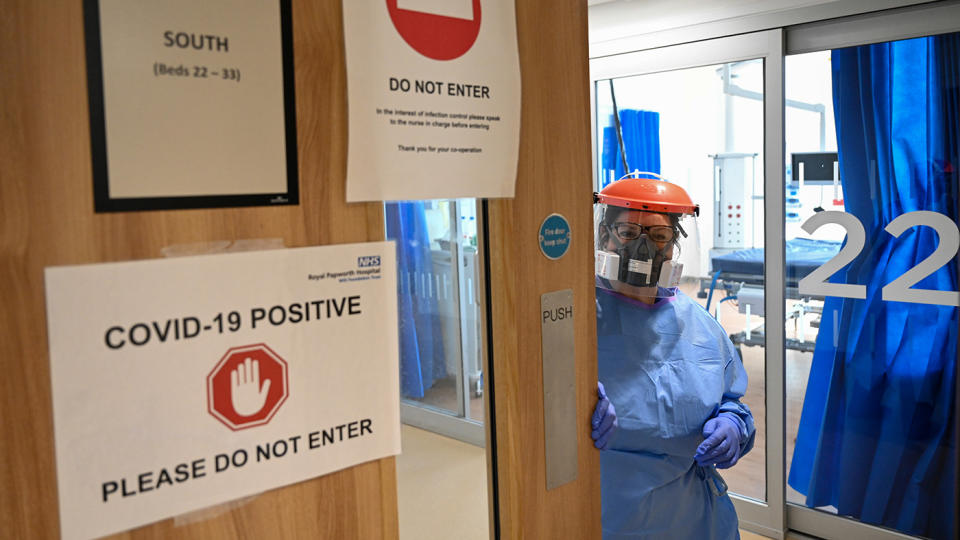Scope of government inquiry into COVID-19's BAME death rate may be too broad to be helpful
A Government’s enquiry into how COVID-19 is disproportionately affecting black, Asian and minority ethnic communities may be too broad to be of any use in local hospitals, according to a leading Birmingham medic.
Dr Adnan Sharif, who was speaking on Up Close And Socially Distant, is hoping to take on the task of combining NHS data with data held by Birmingham council himself, to see if he can identify health or social circumstances that may be making people from BAME communities more vulnerable to COVID-19.
“The scope of those inquiries may be very, very broad, and they may touch on other aspects of care, which from our perspective aren’t going to be particularly patient centric. We really want to know about our particular population,” he said.

In March, Birmingham city hospital reported that 64% of coronavirus deaths were from BAME communities.
Dr Sharif, a Consultant Nephrologist at Queen Elizabeth Hospital Birmingham, said the important thing is to understand what the causality is.
He said: “It could be that there is some underlying genetic predisposition based on ethnicity, or it could just be that we know that people from the BAME community are much more likely to have certain health issues, which predispose to risk – obesity, diabetes, and heart disease.
“It could be that we know people from the BAME community have more of those front-facing jobs – the NHS, public transport.
“Or it could be social, environmental factors. You know, people from the BAME community are more likely to live in areas which are slightly more dense from a population perspective, households of multiple occupancy, and perhaps a bit more intergenerational living as well.”
Latest coronavirus news, updates and advice
Live: Follow all the latest updates from the UK and around the world
Fact-checker: The number of COVID-19 cases in your local area
6 charts and maps that explain how COVID-19 is spreading
Carol Cooper, head of equality, diversity and human rights at Birmingham Community Healthcare NHS Trust, also believes that nurses from BAME backgrounds have felt pressured to work on wards more than their white counterparts.
In a recent interview with the Nursing Times, she said: “Some are saying they are being taken from the wards that they usually work on and put on the COVID wards and they feel that there is a bias.”
Dr Sharif will be using health care data, which provides information about demographics and health issues, alongside data from the social care section, which so far has come from Birmingham City Council.
This approach, which Dr Sharif says will provide a “a clearer insight” has not been without its problems.
“Health care collects data for a certain purpose,” he said. “Local authorities collect data for a certain perspective, and the two were never meant to marry. And that's what we're trying to do here.”

He continued: “The key thing is, we need to ensure that we have good data which is linked up. And that's, I think, the first – and probably the biggest – step.”
Dr Sharif, whose research into forced organ harvesting earned him a Nobel Peace Prize nomination in 2016, said it was really important to ensure they get the facts right.
“Just because you found the link, that doesn't mean that A automatically leads on to B,” he said.
“We need to be very clear about that, because there's a risk if we don't get this narrative right, that you can unnecessarily be worrying people, talking about associations when there's no actual causality between the two.
“There's a lot of health conditions [that] have been linked with this and we need to try and understand what the risk profile is, and how we use this information to try and improve the care that we give.”
Up Close And Socially Distant features weekly video catch-ups with people who are doing whatever they can to help those around them get through the crisis.
This week, host Kate Thornton speaks to Strictly winner and actress, Kara Tointon, about her new storytelling app connecting families in lockdown called TELL, kidney transplant specialist and Nobel Peace Prize nominee, Dr Adnan Sharif, on investigating the disproportionate way COVID-19 is affecting those from BAME communities, and to Annemarie Plas, who started the event that has swept the nation, our weekly Clap for Carers.

 Yahoo News
Yahoo News 
